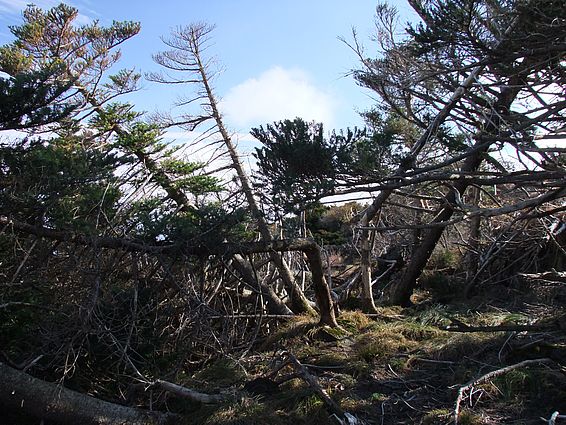24.10.2018 | News WSL
Destructive typhoons are moving poleward. This is the main finding of the study, which documents that the destructive impact of typhoons is moving to new areas on the long-term scale. The study was published by an international team of researchers, led by Jan Altman from the Institute of Botany of the Czech Academy of Sciences, in the prestigious journal PNAS published by National Academy of Sciences of the USA.
Tropical cyclones (typhoons in Asia and hurricanes in America) cause extensive damage, including loss of life, as mostly densely populated areas are exposed to this natural element. So far, there was only limited knowledge about long-term changes in typhoon intensity as reliable data about typhoon activity exists only for recent decades (starting in the 80s). «In particular, it was not clear whether the increase of intense typhoons, observed in areas where they occurred very rarely in the past, is within the range of long-term natural variability or if these extraordinary changes could be connected to climate change,» says Jan Altman, the leading author of the study, which resulted from the cooperation of Czech, Russian, South Korean and Swiss researchers.
Storm history in tree rings
Information stored in tree-rings was used to discover the variability in past typhoon activity in East Asia, where researchers from IB CAS perform long-term exploration. «Tree rings serve as a chronicle where all important events occurring during tree life are stored,» explains Jan Altman. Thus, researchers could reconstruct disturbances in natural forest ecosystems induced by typhoons during more than the last 200 years, along a >1300 km long latitudinal gradient in South Korea and Russia.
The results suggest that in the course of the 20th century a rapid increase in the destructive effects of cyclones north of areas which are adjusted to typhoon occurrence took place. «Our findings are important as affected regions were formerly situated at the edge of areas affected by tropical cyclones, and these areas are more sensitive to tropical cyclone hazards because of a lack of experience-based adaptation strategies,» concluded Jan Altman.
(Original news by the Czech Academy of Sciences)
Original publication ¶
Copyright ¶
WSL and SLF provide image and sound material free of charge for use in the context of press contributions in connection with this media release. The transfer of this material to image, sound and/or video databases and the sale of the material by third parties are not permitted.

